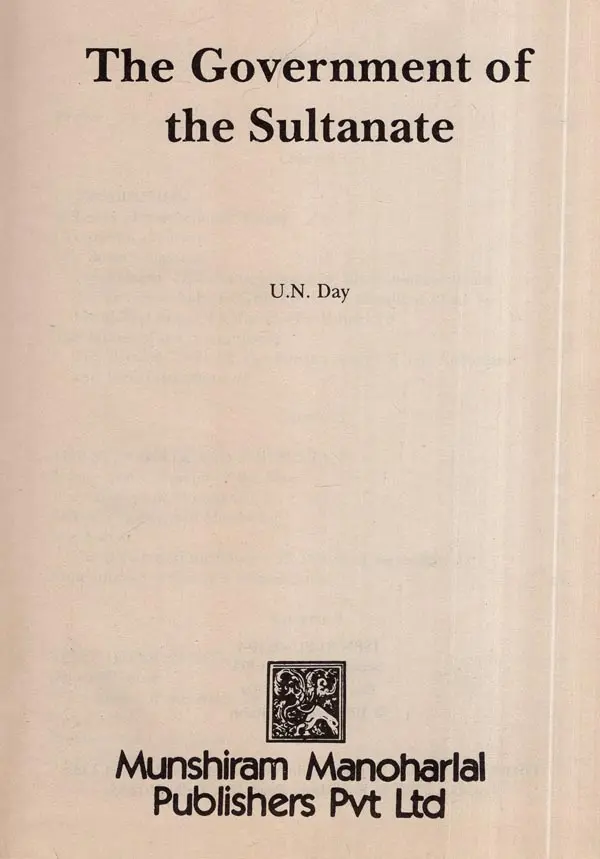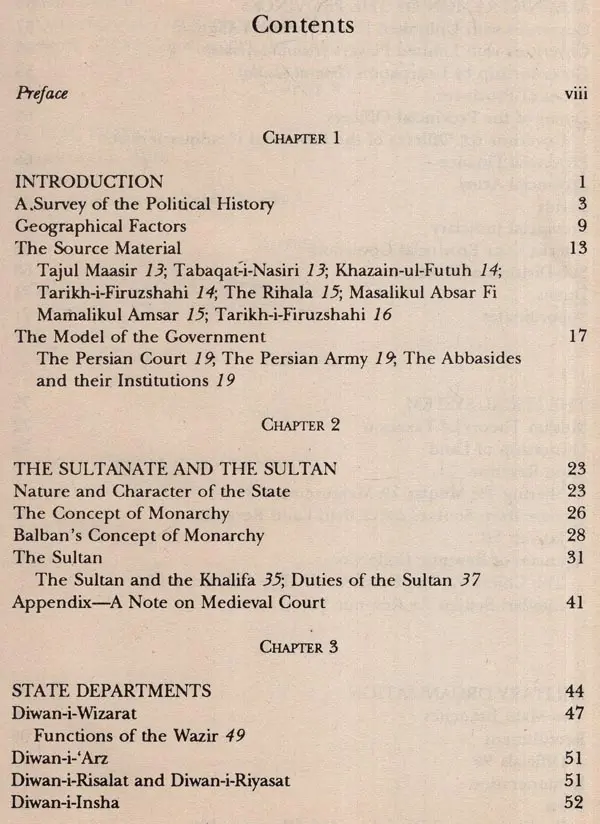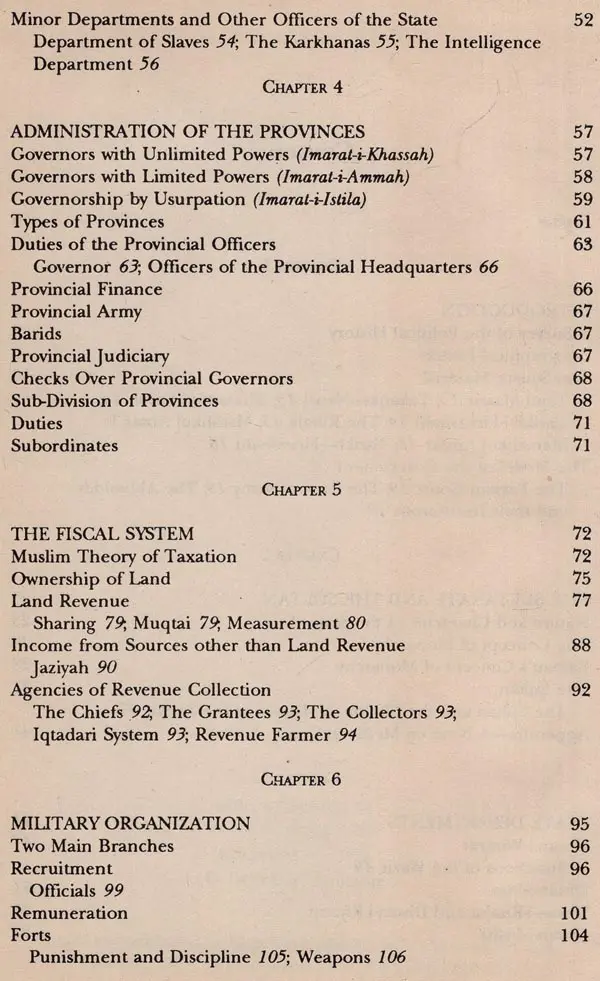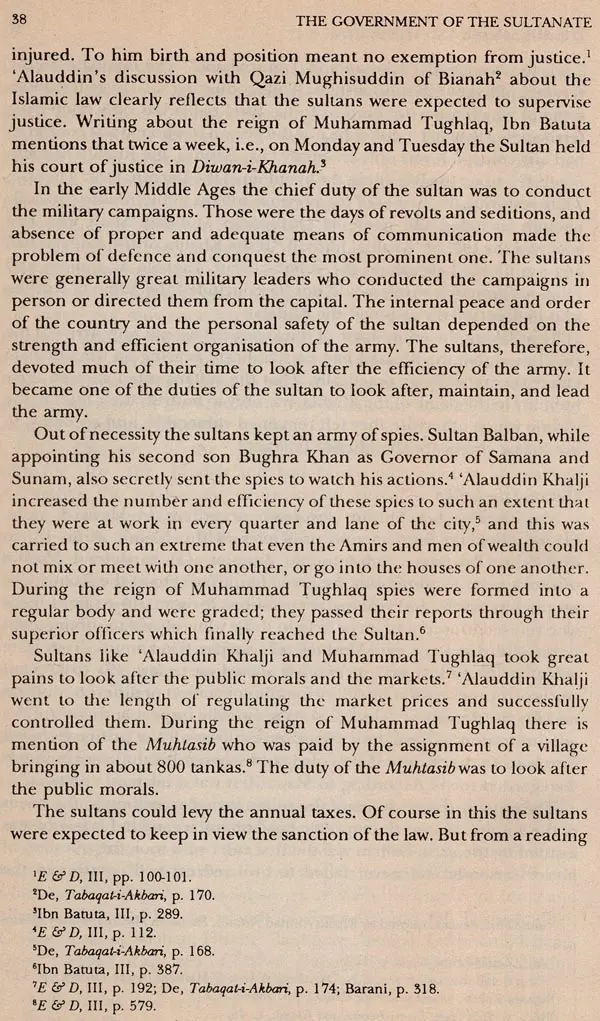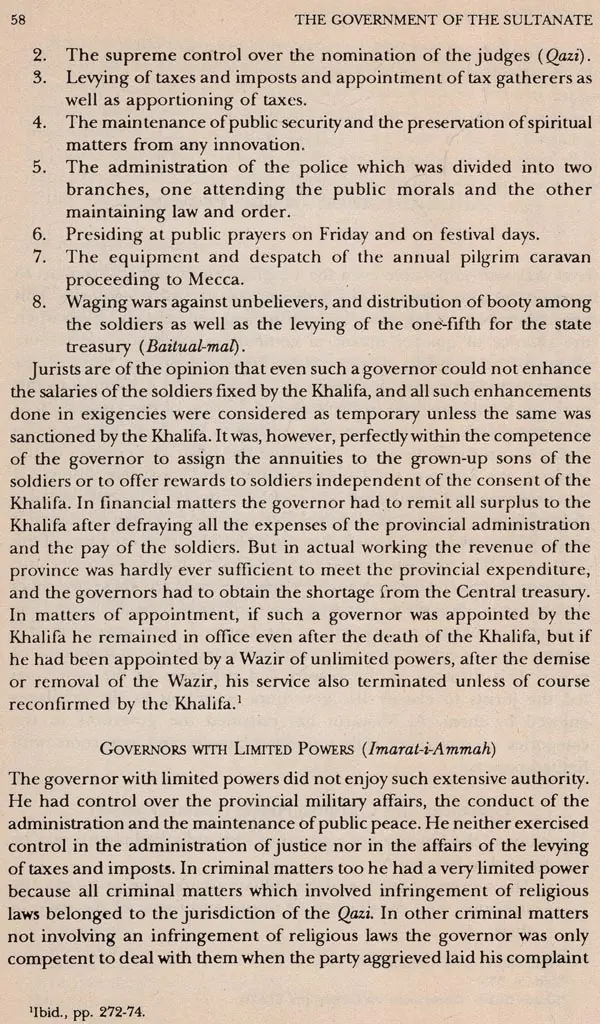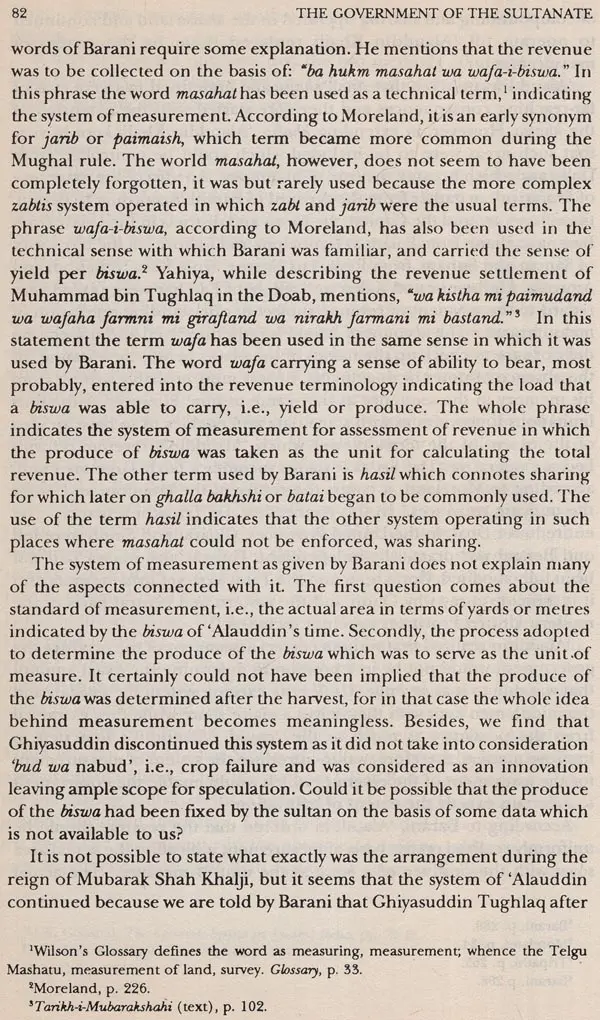
The Government of the Sultanate (An Old and Rare Book)
Book Specification
| Item Code: | UBF045 |
| Author: | U. N. Day |
| Publisher: | MUNSHIRAM MANOHARLAL PUBLISHERS PVT LTD |
| Language: | English |
| Edition: | 1993 |
| ISBN: | 8121505194 |
| Pages: | 154 |
| Cover: | HARDCOVER |
| Other Details | 9.00 X 6.00 inch |
| Weight | 300 gm |
Book Description
The present work is an attempt to trace the origin and development of different administrative institutions prior to the coming of the Mughals. It seeks to examine the aims and the policies of the Sultans. The basic weakness in the organization of the Government has been examined in manner the various branches functioned. Under the head Fiscal System the organization of the revenue department as well as the position of the intermediaries and the cultivators have been examined so as to bring out the economic position of these respective groups. For the purpose of study the work has been divided under seven major heads, and seeks to meet the requirements of the post-graduate students as well as those interested in the political institutions of northern India prior to the establishment of Mughal rule. The two appendices on the Trade and Commerce and The Attitude of the State towards the nonMuslim would be of special interest.
IN PLACING The Government of the Sultanate before the students of medieval Indian history the author intends to bring to their notice his findings and also the findings of such scholars as are engaged in the study of the Sultanate period. It seeks to examine the aims and policies of the Sultans of Delhi and the extent to which these factors contributed to the growth of the administrative institutions and the working of the governmental machinery. India being primarily an agricultural country the produce of the soil constituted the main source of state income. The working of the revenue department as well as the position of the cultivator and the intermediaries, therefore, have been examined in detail so as to bring out the economic position of these respective groups. However, the paucity of state-papers, documents and other records, at many places make the conclusions at best hypothetical and open for correction or change when more data become available contradicting conclusions.
The author wishes to thankfully acknowledge the help he received from Shri R.S. Mathur, M.A., in preparing the press copy and the index.
THE SECOND BATTLE of Tarain fought in the year AD 1192 is a great turning point in the history of India. It decided the fate of the Rajput ascendency in the life of the Indians. It also obliterated the fate of the orthodox Brahmanical thought which had been long basking under the patronage of a decadent Rajput polity. The ascendency of the Brahmanical thought over the Rajput polity had only resulted in weakening the latter and lays bare before us that, when religion fails to adjust itself with changed conditions, it only paralyses the society. India had felt the impact of new vigour and new life when Mahmud of Ghaznin invaded the Indian borders in AD 1000. Time after time Mahmud invaded Indian territories and all the Rajput kingdoms lay prostrate before his mace. The Rajputs were bewildered but only believed it to be the dispensation of Supreme Will. They never for once could think that it was not the fulfilment of divine dispensation but the result of their own stagnant mind which refused to understand that the changed conditions demanded a new code of conduct for the battlefield and replacement of outmoded tactics. The process started by Mahmud continued for almost about two centuries and culminated in the second battle of Tarain in AD 1192; exactly one hundred and ninety-two years after his first invasion. Indeed it is a fact that Mahmud had no desire of creating an empire in India, nevertheless by his activities both in India and outside he was only loosening the forces which he was not destined to control. The same factors which had helped him to create his empire recoiled on his dynasty and finally destroyed it altogether.
**Contents and Sample Pages**
